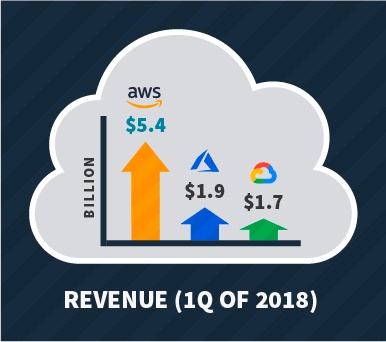The demand for cloud services continues to soar. Gone are the days when “the cloud” was simply a mysterious space to be feared or a worn-out buzzword to be ignored.Today’s executives are increasingly adopting cloud computing across their entire organization and leveraging everything the service has to offer.
In the process, they are improving business agility, lowering operational costs and increasing their propensity for innovation.
Gartner has predicted that by 2019, 30 percent of the 100 largest vendors’ new software investments will be focused on a “cloud-only” philosophy. The research firm also states that by 2020, a corporate “no-cloud” policy will be as rare as a “no-internet” policy is today.
Adopting Cloud Services
The benefits of the cloud are becoming quite evident, but adopting a “cloud-first” or “cloud-only” structure is not a simple undertaking. It requires a tremendous amount of planning, and many executives still struggle with where to begin.
While there are several factors to consider, a successful migration depends primarily on two things:
- Selecting a cloud provider that meets your unique needs.
- Working with an experienced implementation partner who fully understands your organization’s technical and business goals.
The Top Cloud Provider
In this blog, we’ll highlight the cloud provider that seems to be on everyone’s top contender list – Amazon Web Services (AWS). The past decade has seen AWS become a front-runner in the cloud computing services space.
According to Amazon’s quarterly earnings statement, AWS captured $5.11 billion in revenue in the last quarter of 2017 and $17.46 billion for the entire year.

For 2018, all major cloud vendors are seeing accelerating revenue. However, AWS is clearly leading the pack – bringing in $5.44 billion in Q1.
Microsoft’s Azure and Google Cloud Platform (including G Suite and Google Apps) earned $1.9 billion and $1.7 billion, respectively.
Analysts predict that this trend will continue and by 2020, Amazon Web Services will still capture twice the combined cloud revenue of its two biggest competitors.
Why Amazon Web Services (AWS)?
Boasting over a million active, well-recognized clients, AWS has continually proven itself to be an impressive choice. Here are a few reasons why:
1. It’s Scalable
Using AWS tools, Auto Scaling, and Elastic Load Balancing, your applications can scale up or down based on demand. Backed by Amazon’s massive infrastructure, you have access to compute and storage resources whenever and however you need them.
Organizations that experience drastic peaks and valleys in resource demand find this feature particularly valuable.
Retailers are a prime example. In a traditional set-up, retail businesses would need to plan –and pay– for resources all year in preparation for the rapid influx of holiday shoppers. In essence, they would be wasting money on resources that are not needed during the off-season.
On the cloud, this practice of over-provisioning becomes a thing of the past.
We’ve helped retailers leverage the cloud for better scalability and cost savings.
Read our latest case study here.
2. It’s Reliable
To duplicate the powerhouse that Amazon has built would be nearly impossible and exorbitantly expensive.
With AWS, you take advantage of its reliable, and secure global computing infrastructure – the virtual backbone of Amazon.com’s multi-billion dollar online business that has been honed for over a decade.
Think of AWS just as you would your electrical grid. You can count on it being there at least 99.99 percent of the time. That’s very little downtime (if any). And you don’t have to fly across the globe to visit all your data centers. You simply log in – 24 hours a day, 7 days a week. Once you have implemented your environment in one of the AWS zones/data centers, you can quickly replicate it in any of the other 17 regions around the world.
3. It’s Secure
Security is typically the number one concern for businesses seeking to migrate data. AWS has invested billions of dollars in an end-to-end approach that includes operational, physical and software measures to harden its infrastructure and deliver ongoing compliance. The good news is that you don’t have to spend billions to access it.
Combine the strength of the AWS cloud platform with the proficiency of a technology partner who can add on as many layers of security as you need. You’ll get a highly protected environment at a fraction of the on-premise price.
4. It’s Cost-Effective
AWS has worked to make its services as cost-effective as possible for all business types. Every service is offered “a la carte” – meaning you only pay for computing power and storage, along with any resources used.
Nevertheless, there is still ample debate within the industry about whether or not moving to the cloud is truly cost-effective. Some businesses initially find the move to be quite pricey but later realize the cost savings. Other organizations immediately see cost reductions across the board.
Think replacing your old hardware with a cloud option will save you money? Perhaps it would. However, if you move forward with an ill-informed and incomplete approach, you will almost certainly suffer the exact opposite of savings. Poor planning is a guarantee for surprise and unwelcome costs.
In order to maximize your cloud investment, you must fully understand your capacity needs and develop a holistic strategy to support them. Here’s where working with a qualified partner is incredibly advantageous.
5. It’s Flexible and Easy to Use
Using AWS, you can choose not only the programming language but also the operating systems, database and web application platform you require when performing your migration. The platform is specifically structured to enable application providers, vendors and ISVs to host all your required applications efficiently and safely whether they are native or SaaS-based.
In fact, the AWS Marketplace offers over 4,000 different services and solutions to build, scale or enhance your business on the cloud. You can purchase a variety of tools, quickly add or remove features, grow and change as necessary – on a yearly, monthly or even hourly basis. No need to buy physical licenses anymore. The AWS platform provides a range of options to enable your move to the cloud and allows you to do it at your own pace.
You know you want to make the move to the cloud, but do you know how to get there?
If Gartner’s predictions for next year prove to be true, it’s conceivable that you can free yourself from any physical means of computing and experience the full power of the cloud.
Regardless of which cloud services provider you choose, make sure you work with a knowledgeable partner to help you get there.
The Auxis cloud team offers expertise and support throughout the entire cloud journey – from strategy and planning to migration and operations. As an AWS Advanced Partner and a Microsoft Azure Gold Partner, Auxis enables our clients to make hassle-free migrations and optimize the return on their investments. In my next blog, I’ll share my top tips for maximizing the value of the cloud.
If you’re looking for cloud support, schedule your free consultation with one of our cloud experts. We can help with designing the right cloud strategy and platform, to migration and ongoing operations including financial management and automation.

